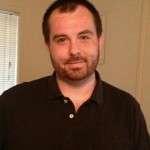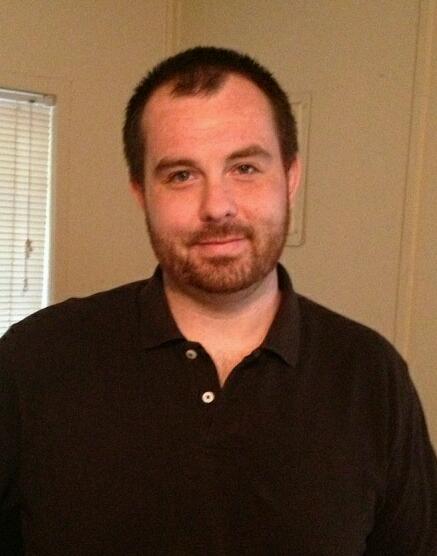Hood’s approach has no flaws from the standpoint of an observing scientist; but, on the personal level, one may have trouble distinguishing between the cause and the consequence.
It’s the Fruits, not the Roots: A Response to Ralph Hood
By Joshua James, Henderson State University
Published by the Religious Studies Project, on 22 May 2013 in response to the Religious Studies Project Interview with Ralph Hood on Mysticism (20 May 2013)
When I began outlining my response to this interview—which is an intriguing psychological look at mystical experience through the filter of one of the most insightful minds dealing with the subject today—I wanted to remain as objective as possible and remove the influence of my personal experience. I found it nearly impossible. One method for addressing the intersection between lived experience and academia is through reflexivity. In the article, “On Becoming a Qualitative Researcher: the Value of Reflexivity,” by Diane Watt, the author notes the importance of juxtaposing one’s self in relation to their research interest. By the researcher or author stating their worldview (or in some cases bias) the reader has a better understanding of not only the structure of inquiry but also the interpretive frame of the author’s position. In the case of Watt (2007), her experience as a school teacher informed her paradigm of inquiry.
Watt’s argument for reflexivity relaxed my reluctance. Watt kept a journal of her experience and combined her reflexive exploration with quantitative research to construct an academic product with multiple layers of depth in inquiry both in terms her research interests and in self-reflection of perceptions in analysis. Watt found her journal quite helpful: “Through the writing process, I was able to excavate memories of my own classroom practice.” I realized that when I listened to the interview with Ralph Hood, that I had “excavated” memories of my own. Thus I decided that not only would including my first-hand experience be helpful to my argument, it would be ill-advised not to include it, possibly even irresponsible. This paper is written in relation to my own reflexive experience of understanding mysticism and the profound themes posed by Dr. Ralph Hood’s podcast.
When I first read William James’ The Varieties of Religious Experience, a text to which Dr. Ralph Hood refers liberally, I strongly connected with an account given by an agnostic man during a lecture entitled “The Reality of the Unseen.” James identifies him only as “a scientific man of my acquaintance.” A portion of the account follows:
Between twenty and thirty I gradually became more agnostic and irreligious, yet I cannot say that I ever lost that ‘indefinite consciousness’ which Herbert Spencer describes so well, of an Absolute Reality behind phenomena…I had ceased my childish prayers to God, and never prayed to It in a formal manner, yet my more recent experience show me to have been in a relation to It which practically was the same thing as prayer…I know now that it was a personal relation I was in to it, because of late years the power of communicating with it has left me, and I am conscious of a perfectly definite loss.[1]
While at the time of the writing, James’ acquaintance was over twenty years older than the age I am now, his early experience virtually mirrors my own.
I’m a skeptic. However, like the man to whom I refer above, I have, rarely, turned to prayer in times of desperation, and I have always had a sense that there was someone else involved with the world; someone to whom I owed thanks for undeserved good fortune, someone who heard my thoughts, someone who compelled me to feel guilty or embarrassed even when no human could possibly have known the mistake I made. I have had, in spite of my agnosticism, an experience that could be classified as a “mystical experience,” the details of which I shall not go into, but I did experience a degree of transcendence in the sense that I lost emotional control and it seemed as if someone else had this control. It occurred during a period of temporary desperation which prompted me to pray to whom I do not know for the first time since my childhood (which was spent in a Pentecostal church).
Hood makes clear in this interview that what he is interested in, with regard to spiritual experience, is the interpretation of an experience rather than the cause of an experience. That is to say that regardless if one’s spiritual experience occurs during prayer, deep self-reflection, or after swallowing a couple hits of blotter acid, the consequences and interpretation of the experience, usually involving a transcendence or “loss of self,” validates the experience. Hood’s approach has no flaws from the standpoint of an observing scientist; but, on the personal level, one may have trouble distinguishing between the cause and the consequence.
I will refer to my own experience to demonstrate my point. I could interpret my experience as evidence, or even proof, for the more fundamentally-minded reader, of the existence of God, and as confirmation of the validity of the scripture. It could have been the reassurance I had been looking for to readopt my faith.
But because I understand, or more appropriately, believe I understand the cause, my interpretation is different. I neither pretend to be an expert in the field of psychology nor do I deny that the human brain is still a mystery to those who are, but I know enough to know that the brain is powerful. And to know that suggestion is powerful. Therefore, given that I was in a state of desperation and asking an invisible, unknowable presence for a mercy of which I felt unworthy, my brain created the experience. My complexly constructed brain used overtly simple logic to rationalize a scenario where something special had happened to me: I asked someone—and I deeply hoped this someone existed—for something and I had received it, therefore that someone must have given it to me. Furthermore, as I previously stated, I felt undeserving of the mercy I received. Because I felt undeserving, it was natural to feel gratitude, and I don’t think I’m being too presumptuous when I suggest that it is the nature of human mentality to focus our gratitude or blame, anger or affection onto a person, or Supreme Being in this instance.
Make no mistake, Hood’s argument is not lost on me, neither do I disagree with it. Hood would likely argue that whether I had chosen to view the experience as faith-affirming or to view it in terms of Freudian reductionism, the experience occurred and I had interpreted it, therefore the experience is validated. The very fact that it happened makes it real, regardless of its roots. I am simply arguing that the roots are sometimes related to the “fruits,” as William James calls them.
Hood’s approach holds so long as we reject the possibility of objective truth. Take, for instance, the example given in the interview regarding psychedelic drugs. Hood argues that the experience should not be dismissed simply because it was caused by synthetic means, that is to say, only the cause is synthetic, the consequence is very much natural and real. On the one hand, if, while on an acid trip, one realizes through a transcendent experience that he or she has become angry and short-tempered recently, and as a result modifies his or her behavior, then the roots of the experience should not nullify the lesson learned. On the other hand, if, while on an acid trip one has, through a transcendent experience, become convinced whole-heartedly of the existence of God, then the validity could be called into question. Hood would argue that if one arrives at this conclusion through mystical experience, it should not be dismissed simply because the cause was hallucinogenic drugs rather than prayer. To his point, if one gained this same certainty through experience caused by other means, I would lend it no more validity; but, it becomes more difficult to distinguish the cause from the consequence.
Despite the rejection of my childhood religion, I have always wanted for the supernatural world of heaven and spirits to exist. The fact I want to believe only adds to my skepticism; I wish there was a heaven, therefore it becomes easier to convince me it is so, and thus I remain wary. If you have ever watched an episode of Ghost Hunters on the Syfy network and seen how disappointed people appear when they discover that their house is not haunted, then you understand what I mean. People would rather be in danger than be wrong, and we would choose almost anything over being alone and insignificant. If we have a heaven, or even a suggestion that there is something after death, say a spiritual experience, then we do not have to fear the loneliness of death. For centuries, the West believed unquestioningly that God created the Earth and all the plants and creatures specifically for us and that it was the center of the entire universe. This arrogant insistence upon being special has been deeply embedded in our collective unconscious for some time. The discoveries made along the road to the present were increasingly more difficult to deal with until we finally became the most dominant animal on one of many billions of rocks in a universe too big for us to even begin to measure. It is no surprise we want to believe. Thus even today any experience of some transcendence must be interpreted as special conversation between the individual and God himself, or whatever entity or realm in which one believes.
For Hood, my cynical interpretation only proves his point: the consequence of the experience is all that matters; the religious among us will interpret it religiously, and the non-religious among us will interpret it non-religiously. A spiritual world exists because people continue to experience it. It is a post-modern and pragmatic philosophy, and it serves him well. Take Hood’s and Paul Williamson’s work with the Lazarus Project for example. The addicts replace the drug experience with a spiritual experience, and if it benefits them, who could question its validity. And of course, if someone manages to reveal the spiritual world to be an objective part of the natural world, it will undoubtedly be discovered through the mythological agnostic approach used by scientists like Ralph Hood who refused to be limited by presumptions.
This material is disseminated under a Creative Commons Attribution-NonCommercial-NoDerivs 3.0 Unported License. and can be distributed and utilised freely, provided full citation is given.
About the Author
 Joshua James is in graduate school at Henderson State, Master of Liberal Arts with an emphasis in social science in progress. He received his B.A., major in History from Henderson also, and has worked in the restaurant business for years. Recently he has become passionate about writing and just this semester has taken an interest in journalism, something I never attempted as an undergrad.
Joshua James is in graduate school at Henderson State, Master of Liberal Arts with an emphasis in social science in progress. He received his B.A., major in History from Henderson also, and has worked in the restaurant business for years. Recently he has become passionate about writing and just this semester has taken an interest in journalism, something I never attempted as an undergrad.
References
- James, William. The Varieties of Religious Experience. New York: Penquin, 1982.
- Watt, Diane. “On Becoming a Qualitative Researcher: The Value of Reflexivity.” The Qualitative Report. 12 (2007): 82-101.
[1] William James. The Varieties of Religious Experience. (New York: Penguin, 1982), 64-5.



